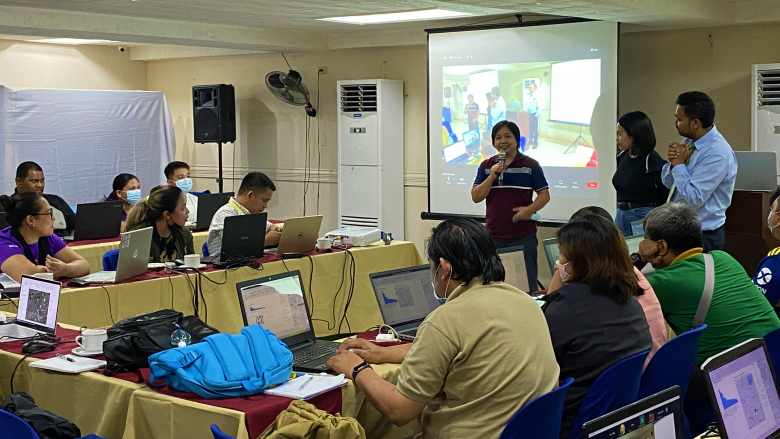In Nigeria, the program consisted of two components in 2019: 1) deep-dive training on data visualization, licensing, citizen feedback, and help desk management to further build capacity at the Nigeria Bureau of Statistics (NBS), and 2) collaborations with university lecturers to create local adaptations of Bank-developed data literacy courseware. The Data Use and Literacy Program has engaged with stakeholders in Nigeria since 2013.
In Jordan, the program catalyzed stronger decision making by mass media, civil society, and academia through targeted capacity development in 2019-2020 which has built on the engagement in the country starting in 2013. The program customized and delivered a modular data literacy pedagogy in English and Arabic to support skills development and promote a culture of data use to improve decision making.
In Nepal, the Nepal Data Literacy Program was launched in 2019 by the World Bank in partnership with UK's Foreign, Commonwealth & Development Office, to train trainers to sustainably transfer data literacy skills to stakeholders in Nepal and build an enabling environment for evidence-based policy making and strengthening federalism in the country. The Program in 2019 included a 100-hour data literacy workshop, which was building upon World Bank’s previous efforts since 2014 to build data literacy capacity in the country among academia, the media, civil society, and the business sector. The data literacy program has already created some ripples of change.
The World Bank team also partnered with the Asia Foundation to organize a Solve-a-thon in Nepal in December 2019, to continue supporting the workshop participants in using their newly acquired skills. The event brought together data scientists, programmers, developers, researchers, and professionals with diverse backgrounds, providing them with a platform to work collaboratively on data-driven projects to address development challenges.
The World Bank team also organized a workshop in July 2019 for senior government officials and leaders in academia, media, and the private sector, to raise awareness about open government data and data literacy.
In Sudan, the Sudan Evidence Base Program involved a partnership between the Sudan Ministry of Finance and Economic Planning, the World Bank, and the UK Department for International Development (now the FCDO). In 2015, as Sudan’s first data literacy initiative, the program’s vision was to catalyze stronger data-driven decision-making by the government as well as mass media, civil society, and academia in Sudan, through targeted and sustainable capacity building.
In order to ensure sustainability, the Sudan Evidence Base Program established close collaborations with six Sudanese universities, towards embedding the data literacy material into their undergraduate and graduate courses, encouraging the continuation of data literacy efforts in the country.
The program also selected professors and/or lecturers from each of the six universities for the nine-month Michael Bauer Memorial Teaching Fellowship. The fellowship provided intensive training on statistics and data literacy to each of the selected academics, towards having them carry the trainings forward for their own students.
In Tunisia, as part of the World Bank’s ongoing effort to provide the Tunisian Government high quality support for producing and analyzing data and statistics, the Tunisia Data Literacy Program aims to sustainably transfer data literacy skills to government officials, members of the media and academics, and to facilitate synergies in support of the decision-making process in Tunisia. Designed under the TERI Umbrella Program, the courses are shaped to offer a modular online/onsite pedagogy both in English and French, and to share innovative open resources and tools with participants. Mentorship and bespoke trainings are also integrated into the Data Literacy Program, enabling concrete use of key data and statistics for specific economic and social research or national policy questions.
